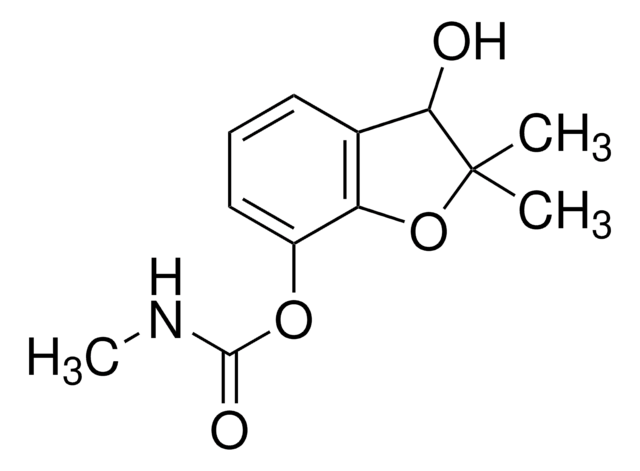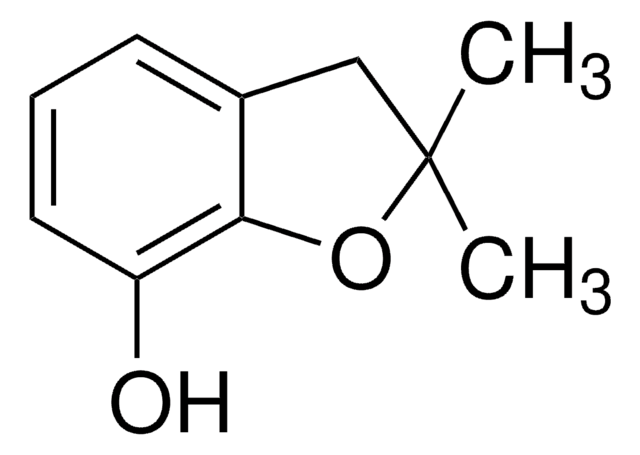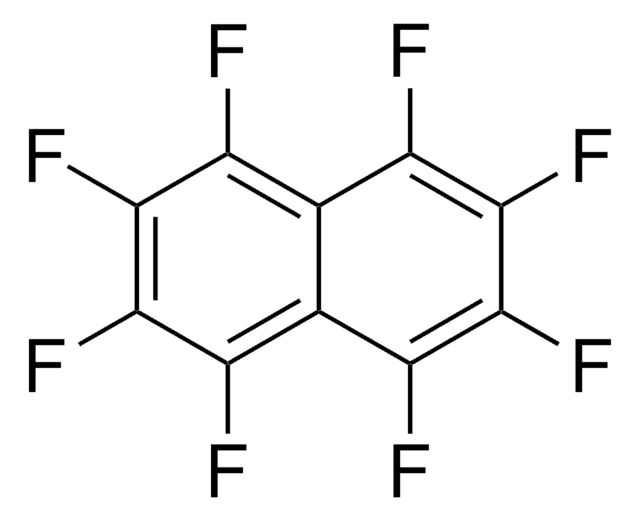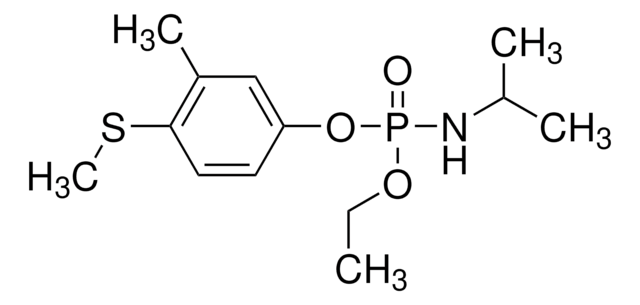426008
Carbofuran
98%
Synonym(s):
2,3-Dihydro-2,2-dimethyl-7-benzofuranol N-methylcarbamate
About This Item
Recommended Products
Quality Level
Assay
98%
form
crystals
mp
150-153 °C (lit.)
SMILES string
CNC(=O)Oc1cccc2CC(C)(C)Oc12
InChI
1S/C12H15NO3/c1-12(2)7-8-5-4-6-9(10(8)16-12)15-11(14)13-3/h4-6H,7H2,1-3H3,(H,13,14)
InChI key
DUEPRVBVGDRKAG-UHFFFAOYSA-N
Looking for similar products? Visit Product Comparison Guide
General description
Signal Word
Danger
Hazard Statements
Precautionary Statements
Hazard Classifications
Acute Tox. 1 Oral - Acute Tox. 2 Inhalation - Acute Tox. 3 Dermal - Aquatic Acute 1 - Aquatic Chronic 1
Storage Class Code
6.1A - Combustible acute toxic Cat. 1 and 2 / very toxic hazardous materials
WGK
WGK 3
Flash Point(F)
Not applicable
Flash Point(C)
Not applicable
Certificates of Analysis (COA)
Search for Certificates of Analysis (COA) by entering the products Lot/Batch Number. Lot and Batch Numbers can be found on a product’s label following the words ‘Lot’ or ‘Batch’.
Already Own This Product?
Find documentation for the products that you have recently purchased in the Document Library.
Customers Also Viewed
Our team of scientists has experience in all areas of research including Life Science, Material Science, Chemical Synthesis, Chromatography, Analytical and many others.
Contact Technical Service













